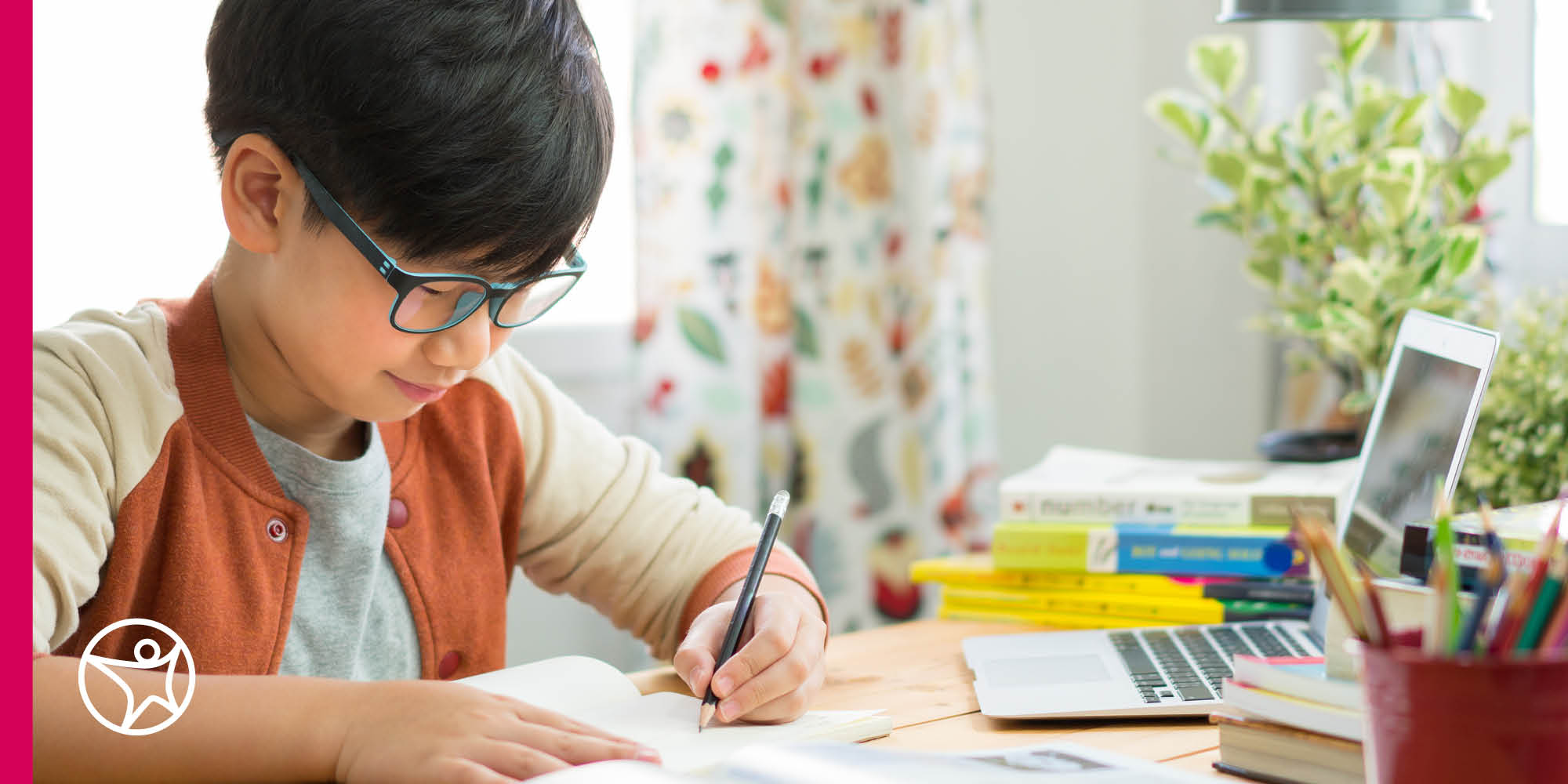Study More Effectively with This 5-Step Study Session for Students in Virtual School
byConnections Academy
4 min to read
There’s no shortage of advice when it comes to study tips for students. From flashcards to study groups, there’s bound to be a method to help you retain knowledge and get ahead in class.
Five Practical Tips on How to Study
Before you sit down to study, it’s important to know how your brain retains information. Here are five good study tips based on practical neuroscience to help you grasp knowledge more effectively:
1. Start by scanning headings, subheadings, and illustrations first.
Before you begin reading or studying a textbook chapter, take some time to scan over the headings and call-out sections. Visualizing the chapter and reflecting on the broad purpose of the lesson ahead can help put you in the right mindset to grasp the material. As you do this, your brain goes into receptive learning mode, giving you a structure in which to connect new concepts. It also paves the way for other good study tips.
2. Next, create conceptual “chunks” of information.
While reading or working through a chapter, try to call out the main takeaways. For example, if a math chapter includes several sample problems and solutions, focus on what each problem has in common. By doing this, you’re creating chunks of knowledge that you can later retrieve and build on to solve problems in a test or exam setting.
3. Pause, recall, and reflect.
After you’ve read a page or solved a problem, pause to recall the main underlying ideas you just conceptualized. One of the greatest benefits of virtual school is the freedom to move at your own pace, so feel free to take a moment and reflect. Giving the concepts you just learned time to sink in before you move on to the next lesson or chapter is one of the best study tips for high school.
4. Write down notes with a pen and paper.
When taking notes, be sure to grab a pen or pencil and paper to physically write out your thoughts. Writing by hand converts what you’re learning into the neural memory structure. In other words, you’re making actual physical changes to your brain when doing this. Feel free to get creative beyond simply writing words, too. Draw pictures, use colored pens, or anything that helps you understand and remember important topics. These are great techniques to help visually organize information you need to study.
5. Make space between your study session and your exam.
Your brain is like a muscle that needs alternating periods of exercise and recovery to synthesize new information and ideas. Good study tips can be helpful, but it’s best to spread virtual learning out, studying some every day rather than cramming during a few marathon study sessions—especially with difficult subjects. When you cram, the knowledge may only stick around long enough to pass the day’s test, but it’s far less likely to be there when you’ll need it again.

How to Best Study at School All Year Long
The most effective study session is one that is part of a study routine. That includes everything from periodic study sessions to creating an online school schedule to help make sure you’re taking time for breaks like going for a walk, chatting with a friend, or having a snack.
Remember, when it comes to gaining and retaining new knowledge, it’s not always mind over matter. Your physical needs often have a direct effect on your ability to learn—and understanding how your brain works can make a big difference in your academic success.
Setting up a fun space to learn can also help a K–12 virtual student’s ability to effectively learn. Discover common mistakes in learning environments that you can avoid when creating your study space.
As helpful as general study advice can be, it’s also essential to remember that a large part of the learning experience is physical. Dr. Anees Chagpar, professor of surgery at Yale’s School of Medicine, says, “Education relies on the well-being of learners and instructors.” So, no matter how many flash cards you create, your body needs to be well to do well.
“Sleep improves productivity. Exercise improves cognition and leads to fewer days in the doctor’s office,” Dr. Chagpar goes on to explain. “A balanced diet provides essential energy to tackle challenges. There is clear data that taking care of our health is critical not only to preventing disease, but also for improving our quality of life and learning ability.”
Once your physical needs are met, you'll be better equipped to sit down for a successful study session.



